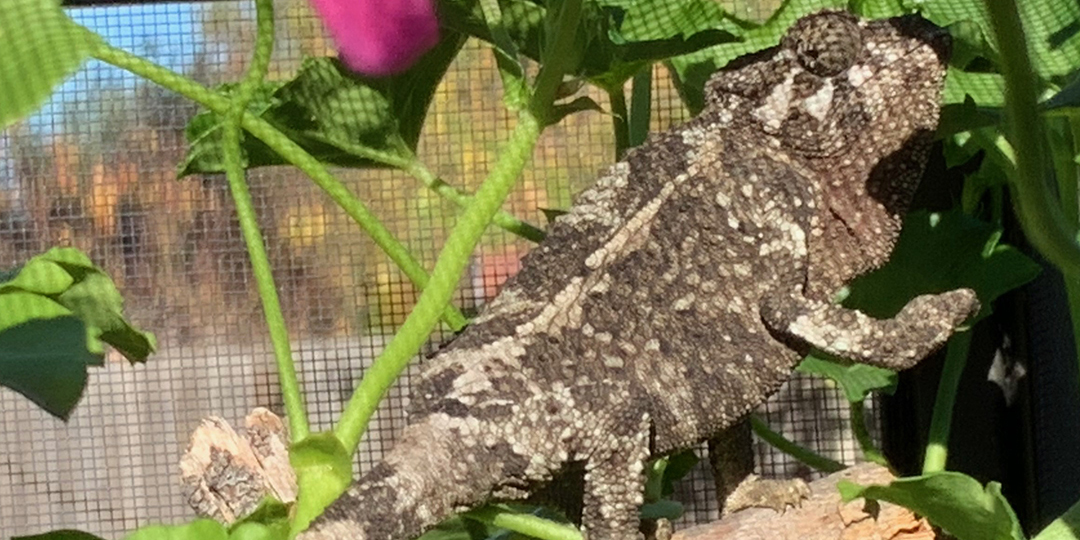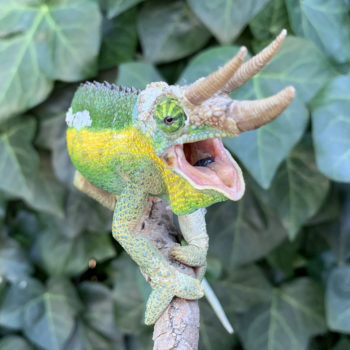Chameleon is flattening its body
Behavior
Chameleon compresses its body so it looks skinny from the front, but larger from the side.
Analysis
Meaning: A chameleon flattens its body when it desires more body surface area.
Possibilities:
- Chameleon feel threatened and is trying to look larger and fiercer
- Chameleon is cold and desires to soak up more sun
- Camouflage
Threat Display
When a chameleon feels threatened it will make itself look as big as possible to scare off the attacker or convince the attacker that the chameleon is too big to be eaten.
This is not a reason to worry other than a sign that you should remove the stressor. If it is you invading their cage space to give them food then they will get over it when you retreat. If they are reacting to a pet bird, for example, then change the cage location so they do not have whatever they feel threatened by around them. This can often happen in situations where chameleons are kept together in the same cage. The solution, of course, is to separate the chameleons into their own cages and put up a visual barrier if there still is an issue.
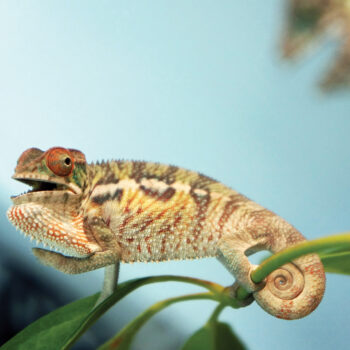
This Panther Chameleon is reacting to a cage mate. Co-habitation of chameleons is a very common source of serious stress.

This Meller’s Chameleon is in a defensive display trying to make itself look as big as possible and warning of a bite.
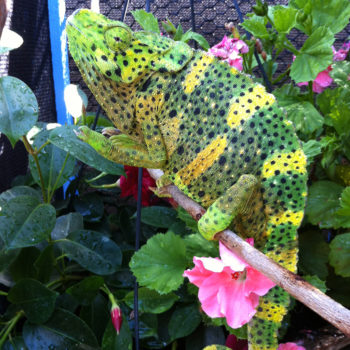
This adult Meller’s Chameleon show what the threat response will look like as an adult.
Temperature Regulation
Chameleons are ectothermic (cold blooded) so they have developed ways of soaking up the sun. one is darkening their skin so they can absorb as much of the sun’s energy as possible and the flattening of their body gives them more surface area to catch the energy.
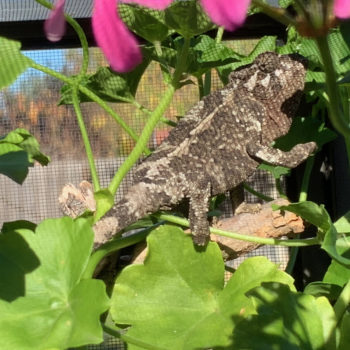


Camouflage
Some species, especially Trioceros deremensis use the ability to flatten their body as part of their camouflage. T. deremensis will flatten their body and turn their backs to you. In a bunch of leaves they essentially disappear.
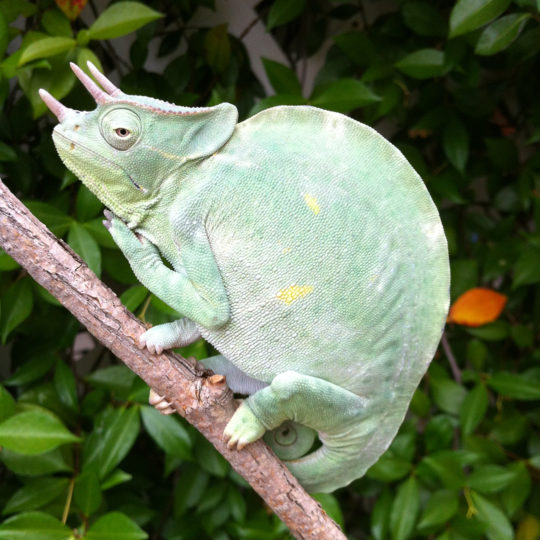
So we are going to play a game! This is a juvenile male Trioceros deremensis. He is puffing himself up to make himself look bigger to me.
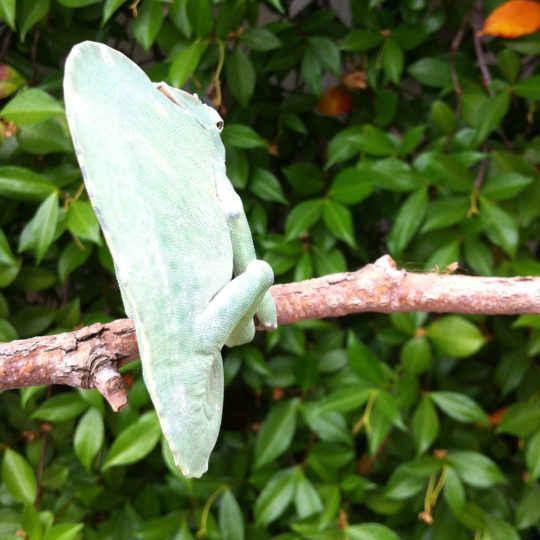
But then he turns his back on me. What can this be for? Well, usually they are in the bushes and trees and leaves. So this is what you are looking for. In the next picture, included in as high of a resolution as I can, is this exact chameleon. Can you find him? This is not a large cage and it took me a full ten minutes with my head literally in the cage to spot him.
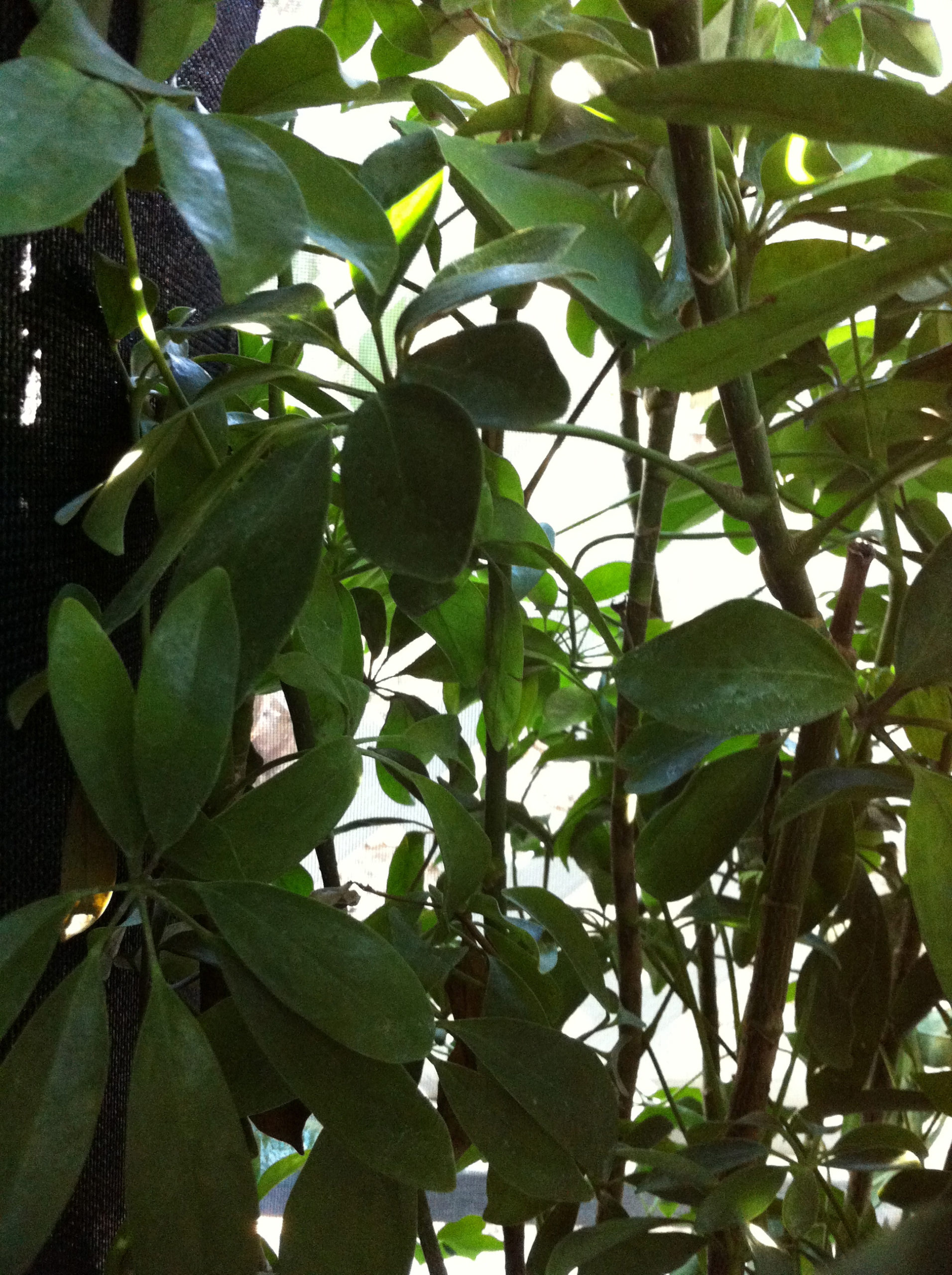
So we are going to play a game! This is a juvenile male Trioceros deremensis. He is puffing himself up to make himself look bigger to me.

